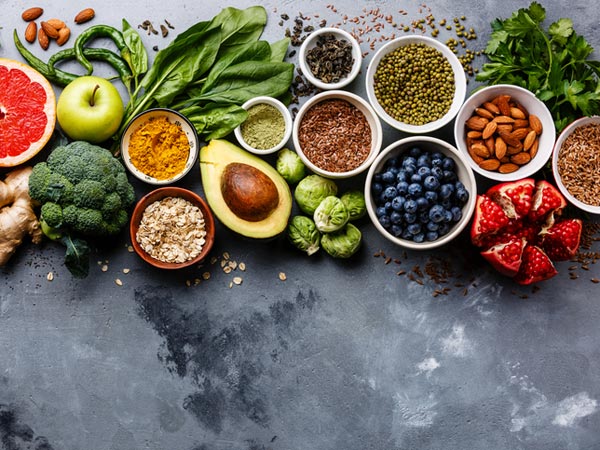Did you know you can reduce your risk of cancer? The International Agency for Research on Cancer estimates that, by 2040, there will be 29.5 million new cancer cases each year in the United States. Research shows that many of these cases could be prevented.
While cancer prevention is still being researched, we do know your chances of developing cancer can be affected by the lifestyle choices you make. In fact, new research shows as many as one-third of all cancer deaths are linked to diet and physical activity. Besides quitting smoking and protecting your skin from damaging UV rays, some of the most important things you can do to help reduce your cancer risk are eating right and being physically active on a regular basis throughout life.
Here are some general guidelines to help reduce your cancer risk through eating right.
- Eat plenty of fruits and vegetables which are linked with a lower risk of certain cancers. Fill half your plate each meal with a variety of colorful fruits and vegetables.
- Eat fewer foods that are highly processed and low in nutrients. Filling up on foods with added sugars and saturated fats leaves little room for nutrient-dense, cancer-preventive foods. You can still enjoy the foods you love, but the foods you eat should consist mostly of whole grains, vegetables, fruit, nuts, seeds and lean protein foods.
- Focus on plant proteins. Beans and lentils are nutritious and affordable sources of protein and dietary fiber. Research links high intakes of red, processed and charred meat with increased cancer risk, so eat these sparingly.
- Limit alcohol. Evidence suggests all types of alcoholic drinks may increase your risk of breast, colorectal and other forms of cancer. If you’re of legal drinking age and choose to drink, limit alcoholic beverages to one drink or less per day for women and two drinks or less per day for men on days that alcohol is consumed.
For more tips on reducing your risk or managing diseases through nutrition, consult a registered dietitian nutritionist in your area.
Find a Nutrition Expert
Looking for credible nutrition information and recommendations? The Academy of Nutrition and Dietetics' network of credentialed food and nutrition practitioners are ready to help!
